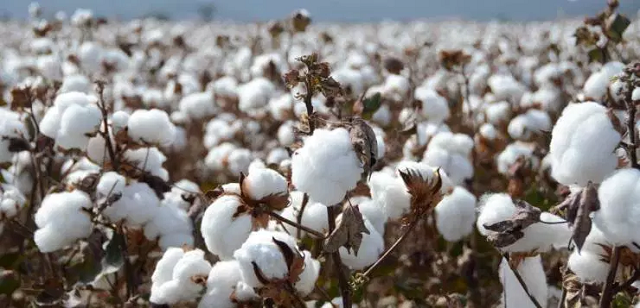Nigeria, Africa’s most populous country, has recorded a major breakthrough in crop biotechnology following official approval and registration of two Bt cotton varieties, MRC 7377 BGII and MRC 7361 BGII, by the National Committee on Naming, Registration and Release of Crop Materials.
This development means farmers can now access biotech cotton seeds in addition to other conventional varieties once the permit holder multiplies the registered varieties.
Nigeria also becomes the seventh African country after South Africa, Sudan, Swaziland, Kenya, Malawi, and Ethiopia to grant open cultivation approval for the crop. The latest global update indicates a total of 14 countries grew 24.1 million hectares of biotech cotton reaching an adoption rate of 80 percent. India had the largest acreage of 11.4 million hectares.
Speaking at the official announcement in Ibadan, Committee Chairman Chief Oladosun Awoyemi exuded confidence that the approval and registration of the GM cotton varieties will revolutionize agricultural development in the country as it leads to the adoption of GM technology. Both varieties were developed by Mahyco Nigeria Private Ltd., in collaboration with the Institute for Agricultural Research (IAR) at Ahmadu Bello University in Zaria.
The National Biosafety Management Agency (NBMA) Director General, Dr. Rufus Ebegba, hailed the development as a victory for Nigeria and Africa. “African Biosafety Regulators need courage and knowledge to act in the face of overwhelming scientific evidence, despite threats from those who refused to believe in the efficacy of safe science and technology,” Dr. Ebegba emphasized.
Director General of the National Biotechnology Development Agency (NABDA) Prof. Alex Akpa noted the registered varieties are highly viable compared to the local conventional alternative and are capable of producing 4.1 to 4.4 tons per hectare against the local variety’s 600 to 900kg per hectare.
“With this development, Nigeria has demonstrated that it has the institutional capacity and human resources to safely deploy genetic engineering in the agricultural sector,” said Prof. Akpa. According to Dr. Rose Gidado, country Coordinator of Open Forum on Agricultural Biotechnology in Africa (OFAB), the official registration opens a new dawn for Nigeria as the country’s cotton production will boomingly increase signalling a return to cotton production.
Dr. Gidado remarked, “With the new varieties, farmers will have access to quality seeds subsequently recording over 50% profit. The country’s textile industry will also be revamped.”
In 2016, NBMA issued a permit for the commercial release and placing on the market of Bt cotton, upon which varietal performance trials were initiated to select suitability in different agro-ecological zones. Other GM crops under various stages of research in Nigeria include Maruca-resistant Bt cowpea, biofortified sorghum, Bt/Ht maize, GM cassava modified for delayed post-harvest starch deterioration and nitrogen use, water efficiency and salt tolerantrice.












